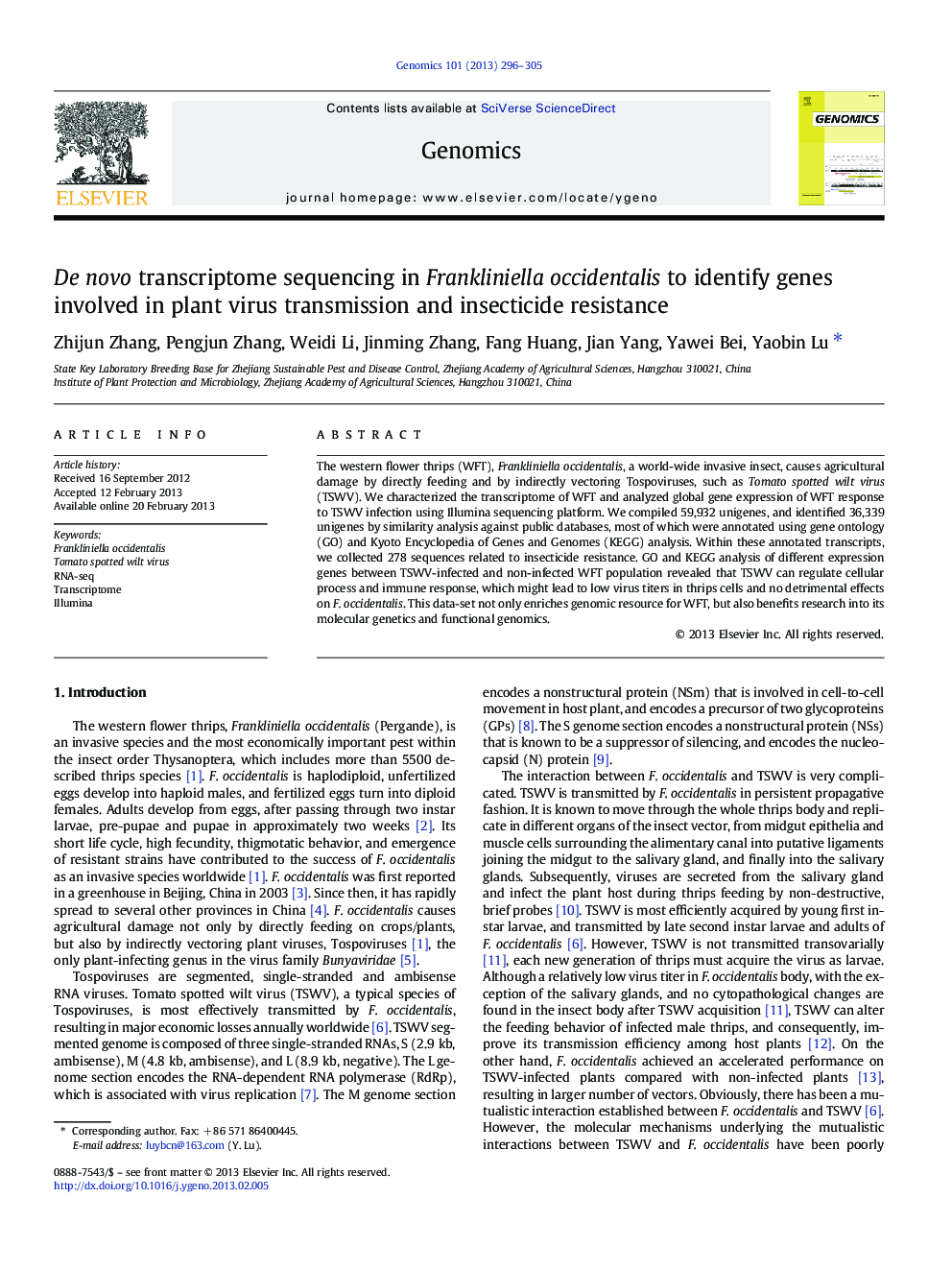| Article ID | Journal | Published Year | Pages | File Type |
|---|---|---|---|---|
| 2820732 | Genomics | 2013 | 10 Pages |
The western flower thrips (WFT), Frankliniella occidentalis, a world-wide invasive insect, causes agricultural damage by directly feeding and by indirectly vectoring Tospoviruses, such as Tomato spotted wilt virus (TSWV). We characterized the transcriptome of WFT and analyzed global gene expression of WFT response to TSWV infection using Illumina sequencing platform. We compiled 59,932 unigenes, and identified 36,339 unigenes by similarity analysis against public databases, most of which were annotated using gene ontology (GO) and Kyoto Encyclopedia of Genes and Genomes (KEGG) analysis. Within these annotated transcripts, we collected 278 sequences related to insecticide resistance. GO and KEGG analysis of different expression genes between TSWV-infected and non-infected WFT population revealed that TSWV can regulate cellular process and immune response, which might lead to low virus titers in thrips cells and no detrimental effects on F. occidentalis. This data-set not only enriches genomic resource for WFT, but also benefits research into its molecular genetics and functional genomics.
► We characterized the transcriptome of the western flower thrips (WFT). ► We identified 278 sequences related to WFT insecticide resistance. ► Comparative analysis of gene expression profiles between tomato spotted wilt virus-infected and non-infected WFT populations ► This data-set enriches genomic resource for WFT and thrips in general.
